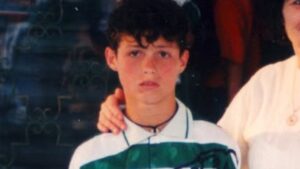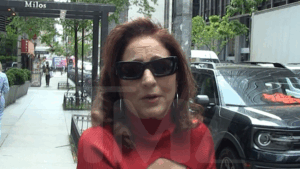
Each time that Demi Burnett showed up on ‘The Bachelor,’ she was an absolute delight.<span class="image-caption-credit"> (Image Credit: ABC)</span>
Demi Burnett Opens Up About Masking Autism with Alcohol on The Bachelor
Former Bachelor contestant Demi Burnett has revealed her experience with autism and how she used alcohol as a masking tool during her time on the reality show. Her candid disclosure sheds light on the challenges faced by neurodivergent individuals in the entertainment industry and the various coping mechanisms they employ.
The Reality of Autism Masking in Television
Demi Burnett’s recent revelation about being autistic has sparked important conversations about neurodiversity in reality television. In a candid interview with People magazine on May 4, Burnett shared how she navigated the intense social demands of The Bachelor through what is known as “masking” – a common practice among autistic individuals to appear more neurotypical.
“I was consuming copious amounts of alcohol during The Bachelor,” Burnett admitted, explaining how this became her primary tool for masking her autism, even before she received her diagnosis.
Understanding Autism Masking
What is Masking?
Masking refers to the conscious or unconscious suppression of natural autistic behaviors to conform to social expectations. This can include:
- Mimicking others’ social behaviors
- Suppressing natural reactions
- Forcing eye contact
- Using substances to ease social interaction
Mixed Reactions from The Bachelor Community
Burnett’s disclosure has received varied responses across social media platforms. While Instagram users have shown overwhelming support, TikTok responses have been more critical, with some questioning the apparent change in her behavior since her time on the show.
“You weren’t like this on The Bachelor. You really switched it up,” viewers commented, to which Burnett responds, “And I think that they are right in saying that.”
The Unexpected Benefits of Reality TV for Neurodivergent Individuals
Surprisingly, Burnett’s experience revealed an unexpected positive aspect of reality television for neurodivergent individuals. The structured environment and constant support system provided by production teams created a uniquely supportive setting.
“You have no idea how much an autistic person could thrive actually in that environment because they get support for the first time in their lives,” Burnett explained, challenging common assumptions about autism and reality TV compatibility.
Breaking Stigmas and Creating Awareness
Burnett’s openness about her autism diagnosis, which she first shared in 2022, is contributing to a broader conversation about neurodiversity in entertainment. Her story helps challenge stereotypes and provides representation for autistic individuals in mainstream media.
Impact of Representation
Burnett’s visibility as an autistic person in mainstream media serves two crucial purposes:
- Providing representation for autistic individuals
- Educating neurotypical audiences about autism’s diverse presentations
- Challenging stereotypes about autism in entertainment
- Encouraging conversations about support systems in television
Looking Forward: Support Systems in Entertainment
Burnett’s experience highlights the importance of support systems in entertainment settings. “Getting all that support on The Bachelor, it was the greatest,” she shared, emphasizing how structured environments can benefit neurodivergent individuals when proper support is in place.
As conversations about neurodiversity in entertainment continue to evolve, Burnett’s story serves as a reminder of the importance of understanding, acceptance, and proper support systems for autistic individuals in all aspects of life, including reality television.
Published on May 6, 2025







